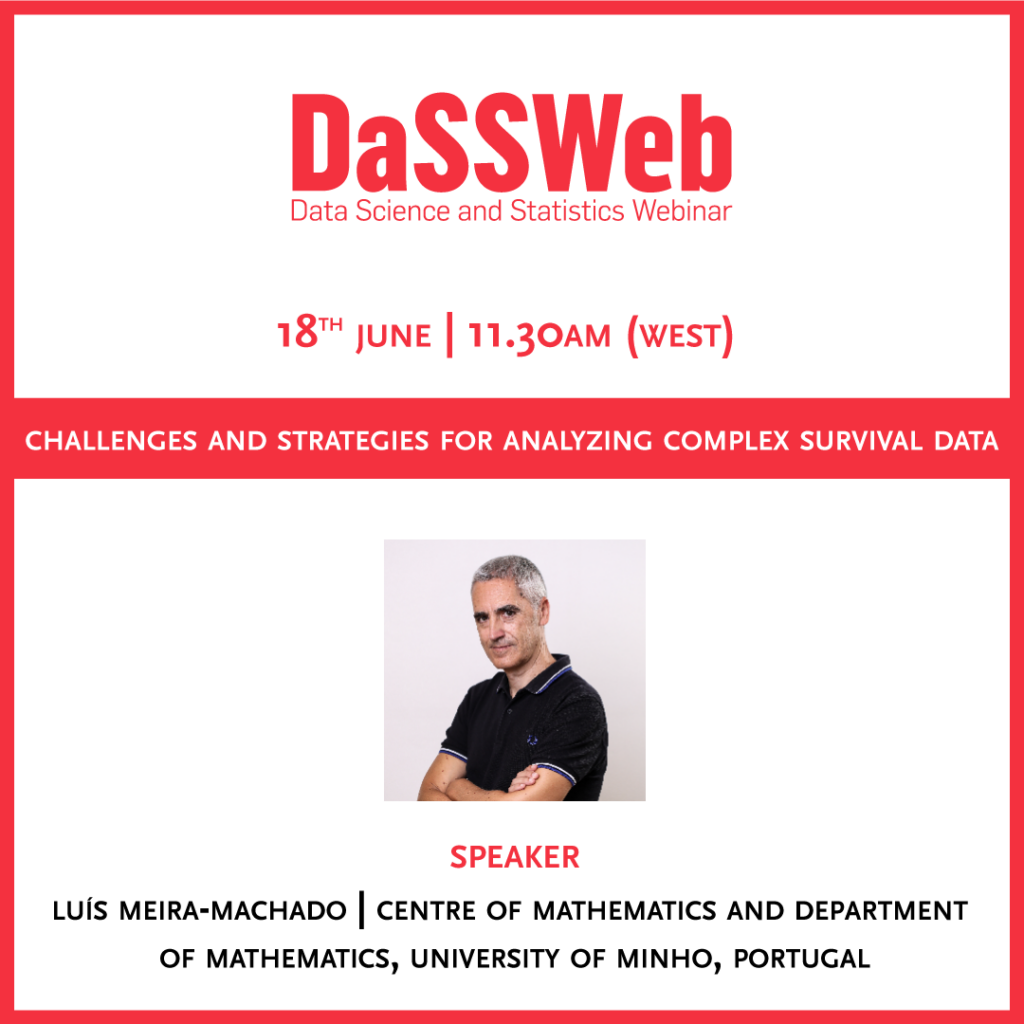Webinar video https://www.youtube.com/watch?v=BL5AvcHDYjk
Presentation slides

Abstract
Survival data analysis presents intricate challenges requiring specific techniques for meaningful interpretation. This talk navigates the complexities of survival data, addressing some key contemporary topics. Emphasizing the significance of understanding various censoring types, we emphasize the use of appropriate methods to handle this incomplete data, ensuring the accuracy and reliability of survival analysis results. Delving deeper, we explore multi-state models, a robust framework for complex survival data analysis. Our discussion offers insights into multistate regression and the estimation of transition probabilities, highlighting the Markov condition and methods for estimating these probabilities while considering covariates. Furthermore, we present some software solutions, some of which have been developed by the authors, emphasizing their crucial role in simplifying the analysis of complex survival datasets.
Short Bio
Luís Meira Machado is Full Professor at the Department of Mathematics at the University of Minho, Portugal. His research interests encompass various aspects of survival analysis, with a particular focus on multi-state models, nonparametric estimation, ROC curves, generalized additive models, and computational statistics. More recently, he has extended his focus to the application of these methodologies within the domain of machine learning. With a portfolio with more than 53 journal articles and book chapters, his contributions, predominantly methodological, have advanced fields such as multi-state models and computational statistics. This impact is exemplified by the development of 12 packages within the CRAN R repository. As a mentor, Luís has supervised 2 doctoral theses and guided the research of 3 post-doctoral researchers. Additionally, he is currently supervising two ongoing doctoral theses. Luís has also served on scientific committees, organized sessions, and is a frequent reviewer for top journals. Additionally, he has led the Department of Mathematics and currently serves as President of the Portuguese Statistical Society.
Information at FEP News
More information at News U. Porto